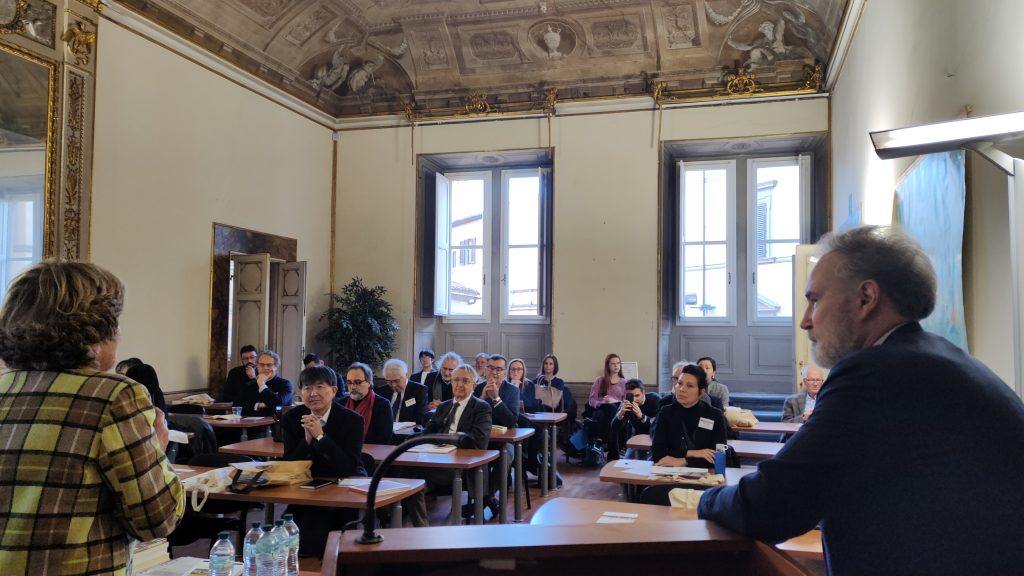East-West relations are a long, dramatic, and fascinating history of encounters, conflicts, misunderstandings, interest, exchange, and — sometimes — sincere admiration. To investigate some of these dynamics, ISI Florence and Kanazawa University have organized an international conference, which took place at Palazzo Rucellai and Palazzo Bargagli on March 6th-7th. Scholars coming from different countries (Australia, Canada, Holland, Italy, Japan, and the US) focused on East-West relations from the late Middle Ages to the early 18th century. The talks addressed a variety of topics, from art and architecture to commerce, historiography, literature, philosophy, religion, science, and technology.

Click here to view the conference program.
At the end of this two-day symposium Professor Stefano Baldassarri (Director, ISI Florence) shared these closing remarks:
“I don’t know if you like fairy tales, not only specific ones but in general, as a literary genre. I do. I have always liked them. Maybe because I am the youngest of three kids. As you know, in most fairy tales it’s the little one who eventually takes the lead and performs some memorable, heroic deeds.
But there is also another, more ”mature” and — so to speak — intellectual reason why I like fairy tales. The characters in them can travel all over the world and wherever they go they always manage to understand what other people are telling them and they are understood in turn. There is no language barrier. In fact, in the wonderful world of fairy tales people can also speak with animals, understand what flowers, trees or even the moon and the wind are saying. Each character can articulate and understand a sort of universal language.
In a very different piece of literature, his essay titled “The Myth of Sisyphus”, Albert Camus — writing in 1942, during the Second World War — often expresses what he calls a “nostalgia for unity.” That too has to do with the desire to recapture a universal language that can make sense of reality, prove that it isn’t absurd and without any potential for progress.
To a certain extent, this is also what our conference has tried to do. Yet, instead of positing the existence of a lost universal language and despairing of ever recapturing that sense of unity, we are trying to create it. Being scholars, we look both backward and forward. In a nutshell, we are trying to better understand world cultures so as to bring about a better world.
One last thing about fairy tales and this two-day conference. In most fairy tales you find a miracle-working object (for instance, a magic ring). I believe we already possess that magic ring. Like in “The Wizard of Oz” (a famous fairy tale) we already possess those qualities that we would like to develop. It’s just up to us. It’s up to all of us to work this “miracle.” I am speaking of the miracle of studying and understanding other cultures. If we do so, we will realize that people and countries from all over the world have many more similarities than differences. What we have in common is much more than what separates us.
Our magic ring is that sincere desire for understanding that makes us study, listen to what other people have to say (no matter what country they come from) and suspend our judgement. It’s that longing for meaning and progress that can make us say: “Wait a minute! Maybe I am wrong and they are right. If I change my attitude, if I start looking at life from a different perspective, things may get better for all of us, starting with me! I could become a better person.”
It takes humility and patience to work this miracle. But it’s possible. It also takes time. In the case of our conference proceedings, it is going to take several months. But our “magic ring” will do the trick, one more time, as it did whenever a conference has been organized at Palazzo Rucellai and Palazzo Bargagli by ISI Florence and its academic partners. Thank you!”.
